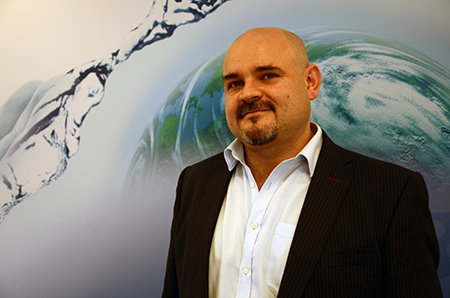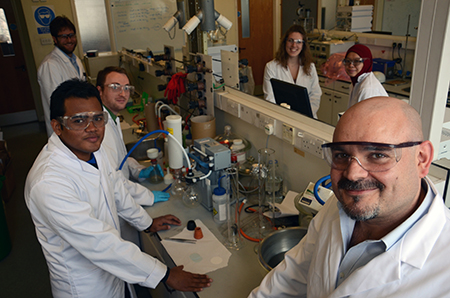Dr Jose A. Lopez-Sanchez: “The use of biomass-derived chemicals and products in manufacturing is a priority as the need for industry to reduce its reliance on fossil fuels increases”
The University of Liverpool has been awarded funding to develop the next generation of renewable chemicals from biomass to use in the manufacture of materials, plastics, solvents and pharmaceuticals.
The £1.8million project, which is in collaboration with the University of York, will involve developing platform chemicals from the sugars, fats, oils and carbohydrates produced by biomass including food supply chain wastes and forestry wastes.
More efficient and more economically viable
The project also aims to improve current biorefinery processes by integrating the technologies for separating and activating compounds derived from biomass materials into a single process to make it more efficient and more economically viable.
Fossil fuel sources currently provide the basis for the majority of chemical feedstocks used by industry. Decreasing supplies, increasing oil prices and environmental concerns mean there is growing shift by industry towards renewable and sustainable sources for raw materials. Whilst there have been advances in the development of renewable chemicals issues still remain with regard to efficiency, scaling-up for use by industry, economic viability and the use of feedstocks available in sufficiently large quantities and that do not compete with food production.
Leading the project, Dr Jose A. Lopez-Sanchez, a lecturer in Sustainable Chemistry and Catalysis within the Stephenson Institute for Renewable Energy, said: “The use of biomass-derived chemicals and products in manufacturing is a priority as the need for industry to reduce its reliance on fossil fuels increases. The use of renewables in the production of bioenergy and chemicals also represents one of the necessary steps required to reduce CO2 emissions in the near future and therefore reduce the detrimental impact of human activity in our environment.
Dr Lopez and his team in the lab at University of Liverpool
“This innovative project brings together academia and industry experts from the fields of materials chemistry, biorefineries, catalysis and chemical synthesis to address some of the challenges of converting biomass materials into new high-value chemical products.
“The combined expertise of the University of Liverpool in the discovery and development of new advanced materials for catalytic transformations of biomass with expertise from the University of York in biomass transformations will be paramount to the success and applicability of this project.
New technologies, processes and materials
“Using state of the art facilities at Liverpool and York, we aim to develop new technologies, processes and materials for manufacturing in this growing industrial area. The application of high-throughput robotic instrumentation for transformation of bio-derived products and catalyst discovery will be a fundamental tool that will enable us to make quick and steady progress in this rapidly emerging area.”
Professor James Clark, Director of the Green Chemistry Centre of Excellence at York, said “We are delighted to combine our expertise and knowledge in green and sustainable chemistry and in the chemical exploitation of biomass, with Liverpool’s know-how in high throughout methods and catalyst development. The new project is an excellent strategic fit with our major new initiatives in the Bio-renewables Development Centre and food supply chain waste valorization. The future success of bio-based products will depend on increasing collaboration between centres of excellence providing complementary skills.”
The project is supported by the Engineering and Physical Sciences Research Council (EPSRC) and partners in the project include the University of York, Unilever, Croda, AB Sugar and Starbons


